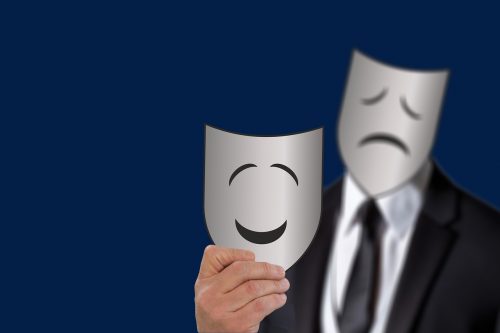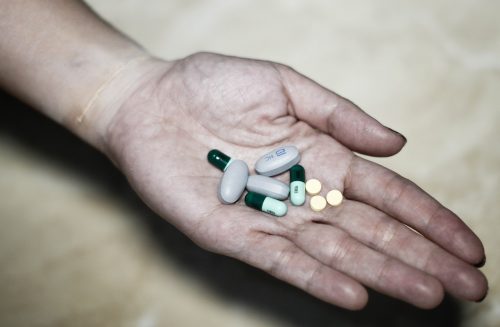
Source: pixabay.com
People have their ups and downs from time to time. This is why it is not a surprise if anxiety takes place. No one can tell who’s going to have it or when it’s going to happen. Though it is natural for a person’s mood to change now and then, still, there are instances when the anxiety levels become too much.
“If we feel anxious, most of us believe we need to get ourselves under control.” – Alicia H. Clark, PsyD
Anxiety takes place when things or circumstances in a person’s life gets out of hand. Happenings can be very stressful at school or work, and they get frustrated over a failed task or simply become disappointed with themselves when a target is not reached. These instances can go overboard and puts a person into anxiety mode, which for some, can trigger the development of Bipolar Disorder.
Having an Anxiety Disorder and at the same time, Bipolar Disorder is unusual. But experts say that this can happen. It is said that a person with bipolar condition suffers from at least one kind of anxiety disorder or had some anxiety issues before the onset of their bipolar condition.
“A little bit of stress is totally normal—and can actually be a good thing.” – Aarti Gupta, PsyD
General Information
By definition, Bipolar Disorder is a manic-depressive condition wherein the human brain shifts a person’s mood, ability to function and his energy to another level so abruptly. This condition may be experienced for days at a time and even much longer on others.
The changes in the mood come in fluctuating levels. There are times when the mood level is high or low. Such a condition is called depression and mania. This is usually made evident in some distinct episodes that happen from time from time. However, when depression and anxiety occur together, it is then called a mixed state.
Manic depression is defined as having that high mood swings which happen not just in a short period.
“The key is to find someone who understands your condition, and that won’t say things like ‘just relax’ or ‘stop worrying so much,'” since that can feel invalidating.” – Dr. Sal Raichbach PsyD, LCSW
Symptoms of manic depression:
- Increased restlessness, energy, and activity
- High mood
- Racing thoughts
- Distracted
- Sleeping problems
- Unrealistic beliefs
- Unreasonable judgment
- Unreasonable spending
- Lasting behavioral issues that are far from the usual
- Increased sexual drive
- Substance abuse
- Aggressive behavior
- Denial
Depressive Episode
A depressive episode is a condition having more than five depressive symptoms that last for days. Below are the signs of the said condition.
- Sadness
- Hopelessness
- Guilt
- Loss of interest
- Decreased energy
- Concentration problems
- Restlessness
- Too much sleeping or the other way around
- Changes in appetite
- Suicidal tendencies and attempts
Bipolar Disorder And Co-Occurring Anxiety Disorder
The following are indicators of having bipolar and anxiety disorder at the same time:
- Panic attacks
- Having symptoms at a young age
- Sleeping problems
- Prescribed medication has no effect
Bipolar and anxiety disorders affect a person’s life in a significant way. Aside from the mood changes, it can also decrease the person’s functionality in their everyday activities.

Source: pixabay.com
Bipolar Disorder Course
Bipolar I Disorder. This is the kind of bipolar condition that includes depression and mania. People with bipolar I suffers from severe mania.
Rapid Cycling Bipolar Disorder. This is when the bipolar symptoms occur more than four times in one year.
These disorders have treatments like medication and therapy. Thus it can be managed. However, if the patient remained untreated, the condition will worsen over time.
Treatment
The treatment for bipolar and anxiety disorder are as follows:
Medication.
Antidepressant.asThis is the treatment doctors would first recommend. They would first prescribe an antidepressant to stabilize the patient’s mood. However, the adverse effect of an antidepressant is that it can result in manic episodes.
Benzodiazepines. This medication is prescribed for people with co-occurring bipolar conditions and is found to be effective. However, continuous intake of such can result in drug dependence.
Types of Therapy
Cognitive Behavioral Therapy. Evidence-Based psychotherapy rather than medication.
Forms of therapy:
- Cognitive-Behavioral Therapy. CBT is psychotherapy that is short term.
- Family Therapy. This kind of therapy involves not only the patient but the family as well. The objective of this therapy is to reduce the distress within the family due to the condition of the patient.
- Relaxation Techniques. This is the technique wherein the patient here is taught on how to cope with anxiety and other symptoms related to the condition.
- Interpersonal and Social Rhythm Therapy. This kind of therapy is more getting the patient into daily activities and having personal relationships.
Getting Help
These questions need to be considered when going to consultation.
- What are the related training do you have?
- What is your initial approach?
- Which do you prefer treating first? Bipolar disorder or anxiety?
- If I see another medical professional for treatment, how will you manage?
- Can you do me a medication prescription?
- How long is the treatment?
- How frequent are the sessions? Will it last long?
- Do you do family therapy?
- During emergencies, is it okay to reach you?
- How’s the fee scheduled?
- What health insurances do you accept?
Tips to Reduce Anxiety and Regulate the Mood
Join a Support Group. Joining a support group allows you to mingle with others who are having the same condition as you. You get to learn from them with your experience and with them you will also get the understanding you need.
Exercise Regularly. Moving your body and getting into physical activity will do good for your mental health.
Get A Good Night Sleep. Having enough sleep is good for the brain and overall well being.
Avoid Drugs and Alcohol. These two can jeopardize your quest in getting over the condition.

Source: pixabay.com
Helping Others
Here are ways that you can help others.
- Be knowledgeable
- Recognize milestones
- Modify expectations
- Measure the progress
- Be Flexible
- Be vigilant with the symptoms
- Encourage
- Make plans if emergencies take place
- Have a positive attitude
Helping Your Child
If you suspect that your child is having symptoms of anxiety and bipolar condition, consult a physician immediately.





